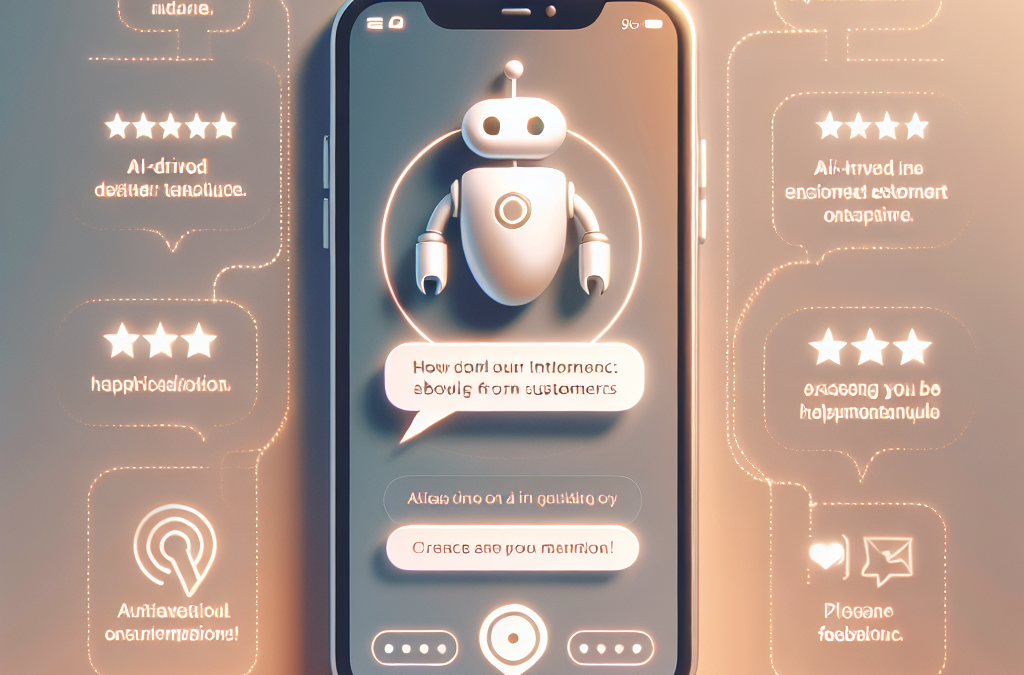
Advancements in Personalization to Increase Sales and Boost Efficiency
December 29, 2024
Understanding the Differences: Messaging APIs vs. Traditional Communication Methods
January 11, 2025High levels of customer interaction are essential for businesses today, especially in a fast-moving digital world. AI-powered chatbots enhance customer engagement by delivering instant responses and personalized experiences, transforming how companies interact with customers. Moreover, their impact on business outcomes is backed by numerous scientific studies and expert insights.
1. Immediate Response and 24/7 Availability
A major strength of AI chatbots is their ability to respond immediately. In fact, customers now expect real-time engagement, and businesses that meet this expectation see higher satisfaction levels. Additionally, because chatbots are available 24/7, they reduce wait times, lower abandonment rates, and ensure help is always accessible.
As a result, companies that adopt chatbots often report improved customer retention. This is because these tools build trust by offering consistent, reliable support exactly when it is needed.
2. Personalization Through Data Insights
AI chatbots use machine learning to analyze customer data and deliver tailored responses. In other words, this personalization makes each interaction more relevant and meaningful. For example, a chatbot that recognizes a user’s frequent interest in a product category can proactively send promotions or helpful content related to that interest.
Consequently, by responding based on preferences, chatbots foster deeper connections and encourage customers to return regularly. Ultimately, this strengthens brand loyalty and boosts customer lifetime value.
3. Seamless Multichannel Experience
AI chatbots operate across multiple channels—websites, apps, messaging platforms, and social media. Therefore, customers can switch platforms without losing context, creating a smooth and continuous journey.
In addition, studies have shown that a consistent omnichannel experience is preferred by customers and boosts engagement significantly. Brands that maintain conversation history across platforms reinforce customer satisfaction and improve overall digital presence.
4. Proactive Engagement
AI chatbots don’t just wait—they act. By using predictive analytics, they can initiate chats when user behavior signals a need. For example, if someone spends time on a specific product page, the chatbot can offer help or highlight a deal.
Furthermore, this proactive approach improves service perception and increases conversions. By reaching out before users ask, companies demonstrate attentiveness and create a more interactive experience.
5. Continuous Learning and Smarter Interactions
Over time, AI chatbots become smarter. Thanks to natural language processing and machine learning, they learn from conversations and customer feedback to enhance future responses. In turn, this leads to better quality interactions with each new customer session.
Additionally, these insights help businesses understand customer pain points, preferences, and trends—valuable data that can shape more effective customer engagement strategies. As a result, chatbots remain aligned with changing customer expectations.
Conclusion
AI-powered chatbots enhance customer engagement through speed, personalization, multi-platform accessibility, and ongoing improvement. As a result, they help businesses reduce costs, improve satisfaction, and offer more dynamic interactions.
In conclusion, as customer expectations evolve, chatbots will play a vital role in digital engagement strategies. Therefore, businesses embracing this AI-driven technology position themselves for stronger customer relationships and sustainable success.
References
- Tsai, W.-H.S., Y. Liu, and C.-H. Chuan, How chatbots’ social presence communication enhances consumer engagement: the mediating role of parasocial interaction and dialogue. Journal of Research in Interactive Marketing, 2021. 15(3): p. 460-482.
- Bhushan, B., Challenges in E-commerce personalization. International Journal of Research in Engineering, IT and Social Sciences (IJREISS), 2018. 8(11): p. 264-267.
- Krishnan, C., et al., Impact of Artificial Intelligence-Based Chatbots on Customer Engagement and Business Growth, in Deep Learning for Social Media Data Analytics, T.-P. Hong, et al., Editors. 2022, Springer International Publishing: Cham. p. 195-210.
- Peruchini, M., G.M. da Silva, and J.M. Teixeira, Between artificial intelligence and customer experience: a literature review on the intersection. Discover Artificial Intelligence, 2024. 4(1): p. 4.
- Misischia, C.V., F. Poecze, and C. Strauss, Chatbots in customer service: Their relevance and impact on service quality. Procedia Computer Science, 2022. 201: p. 421-428.
- Lemon, K.N. and P.C. Verhoef, Understanding Customer Experience Throughout the Customer Journey. Journal of Marketing, 2016. 80(6): p. 69-96.
- https://www.fwfcompany.com/how-chatbots-improve-customer-service/
- Sharma, D., et al., Deciphering the impact of responsiveness on customer satisfaction, cross-buying behavior, revisit intention and referral behavior. Asia Pacific Journal of Marketing and Logistics, 2021.
- Zhu, W., Research on the Impact of Multi-channel Integration Quality on Customers’ Engagement Behavior. Frontiers in Business, Economics and Management, 2023. 7(2): p. 187-202.



